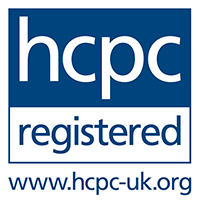‘Current practice’ in relation to psychologists as expert witnesses
Professor Ireland suggested that “there should be an expectation that psychologists providing court reports should continue to hold contracts with relevant health, government or educational bodies (e.g. NHS, Private Health, Prison Service, Local Authority etc) or demonstrate continued practice within the areas they are assessing (e.g. treatment provision).”
At present a significant and growing number of fully qualified psychologists, some of whom provide expert witness services, are self employed or work for commercial, not-for-profit or charitable organisations. This is likely to become more common because of the current reforms of public sector services and restrictions on public sector finances.
Further, professional psychologists working within public sector organisations are under increasing pressure to provide their core services more efficiently. Public sector contracts of employment may also limit the non-core work that an employee can undertake, such as expert witness work. As a consequence, opportunities to undertake such work may be very limited or even excluded. Recent pilot projects which have attempted to set up expert witness services within the NHS do not appear to have overcome perceived shortages in provision, perhaps for those reasons. Also, recent restrictions by the Ministry of Justice on the fees payable for expert witness services may make it uneconomic for public sector bodies to provide staff to provide those services, especially when the full cost of overheads is taken into account.
Therefore the suggestion that psychologists who are providing court reports “should continue to hold contracts have to be employed in relevant health, government or educational bodies” may seem attractive as a ‘rule of thumb’ but ignores the current realities of professional work in the public services. More generally it ignores the wide variety of relevant and valid professional practice undertaken by professional applied psychologists in the commercial, not-for-profit and charitable sectors.
Professor Ireland’s suggestion that in order to be an expert a psychologist should be able to “demonstrate continued practice within the areas they are assessing (e.g. treatment provision)” is seriously misleading. It appears to be based on an inappropriate analogy between psychologists and medical doctors. It is entirely appropriate and long-standing good clinical practice for psychologists to apply their expertise in assessment, diagnosis and prescription independently of practice as a therapist. In fact, many professional applied psychologists both within and outside the NHS are not therapists at all; they provide assessments, advice, supervision and other forms of consultancy. The suggested distinction between clinicians who are legitimate experts and those who cannot be experts because they only assess people in order to advise Courts is therefore a false distinction.
The issue of ‘current practice’ should be addressed by looking for:
– continuity of relevant professional practice (whether employed, self employed or voluntary) in preceding years;
– an appropriate level of experience in the area required (with reference to indicators such as Continuing Professional Development, including relevant training updates and skills development, teaching, professional and committee activity, or publications in peer reviewed journals).
As with all expert witnesses, the nature of the current practice required of a psychologist working as an expert witness will depend on the nature of the expertise required to advise the Court on the specifics of the case in question.






